Ebola crosses a porous border
- Published
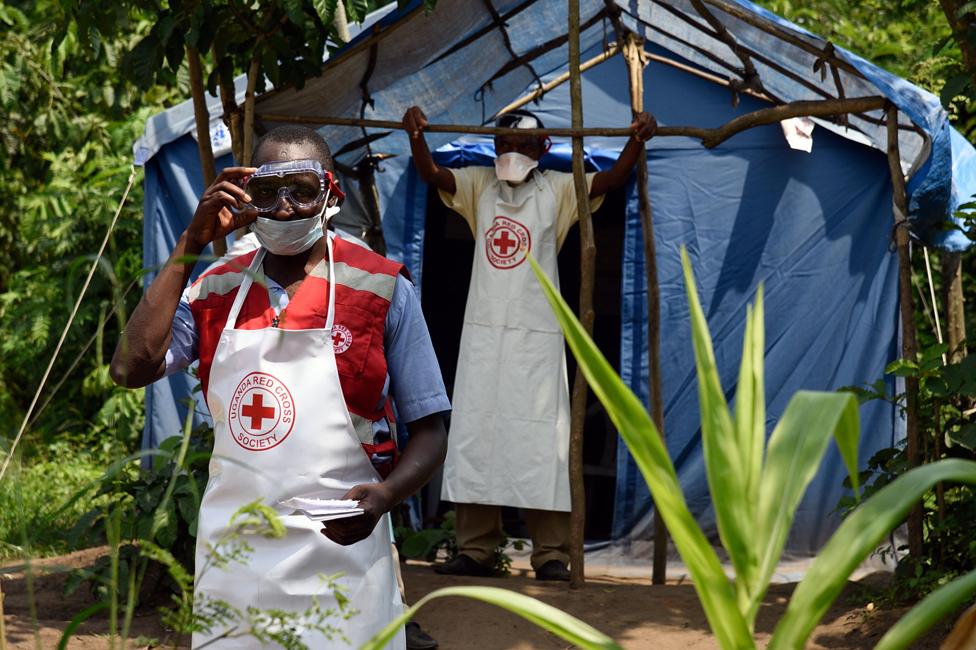
Health workers posted to the border of DR Congo and Uganda

This week the Ebola virus crossed from the Democratic Republic of Congo into Uganda, but there are reasons to hope it can be contained on that side of the border, reports Olivia Acland.
On Monday morning, a family was heading from the Democratic Republic of Congo back home to Uganda, after a funeral. The grandfather had died from Ebola and his daughter had gone to the country a few weeks earlier, to try and nurse him back to health.
By the time the family reached the Ugandan border, most of them were suffering from high fever and diarrhoea. Border officials took their temperatures and immediately sent them to a health clinic in the Congolese border town. Here, they were put in isolation, awaiting tests. But after dark, six members of the family, including a five-year-old boy, slipped out of the clinic and set off down a desolate and poorly policed road crossing into Uganda. A few days later both the boy and his grandmother had died.


Health officials have long feared that this outbreak of Ebola virus could pass over the porous border into Uganda. The border is over 500 miles long and many of the crossings are informal - sometimes just a couple of planks laid across a shallow river. An endless stream of traders, some balancing baskets of eggs on their heads or swinging chickens by their feet, moves back and forth across the border each day.
The Ebola outbreak in five graphics
One of the main reasons it has been so difficult to contain the disease in DR Congo itself is because it is spreading in a conflict zone. Some 120 armed groups hide in the jungle-matted hills in the east of the country and regularly spring out of the bush to abduct or rape civilians. They make money smuggling minerals like gold and coltan, used in mobile phone batteries, or by plundering villages and stealing livestock.
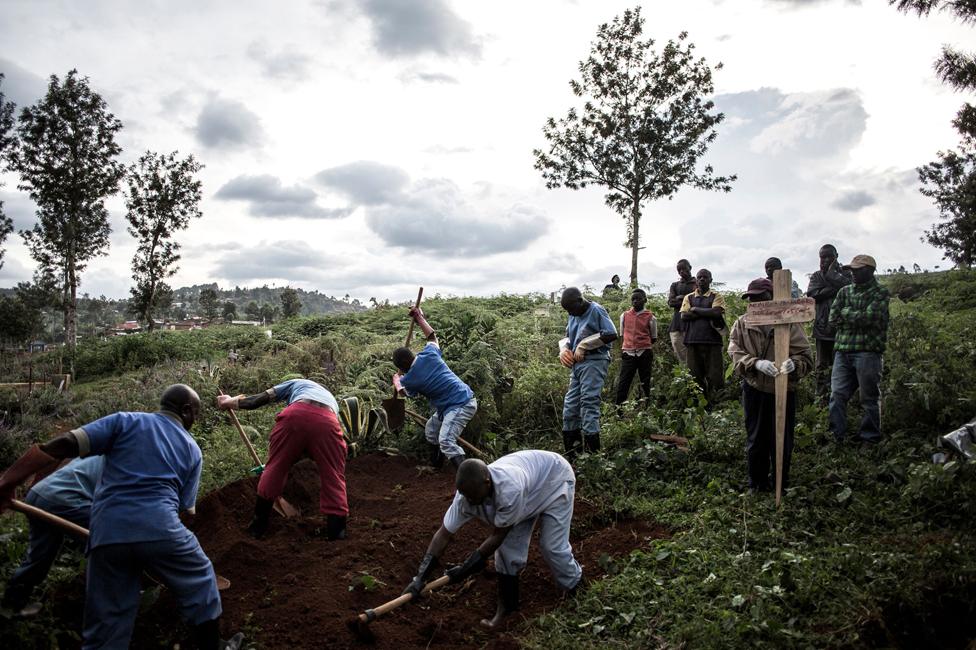
Burying the dead in Butembo
Complicating things further, the local population has little trust in the authorities and their ability to respond. Health workers often move around with armed escorts, which arouses suspicion. And when impoverished villagers see fleets of four-by-fours tearing down their roads they talk about "Ebola business" and are jealous of the money being poured into the response.

From Our Own Correspondent has insight and analysis from BBC journalists, correspondents and writers from around the world
Listen on iPlayer, get the podcast or listen on the BBC World Service, or on Radio 4 on Saturdays at 11:30

Last month, I visited Butembo in the north-east of DR Congo - the disease-ridden region has become known as the "Ebola zone". People there told me they believe the disease was bought to the region on purpose so that foreigners could make money from them.
Since the start of the outbreak, there have been over 100 attacks on health workers and Ebola treatment centres. Some have been spontaneous, fuelled by distrust and jealousy. Others, like the burning down of treatment centres, were premeditated and organised by rebel groups. Their aim and agenda is unknown.
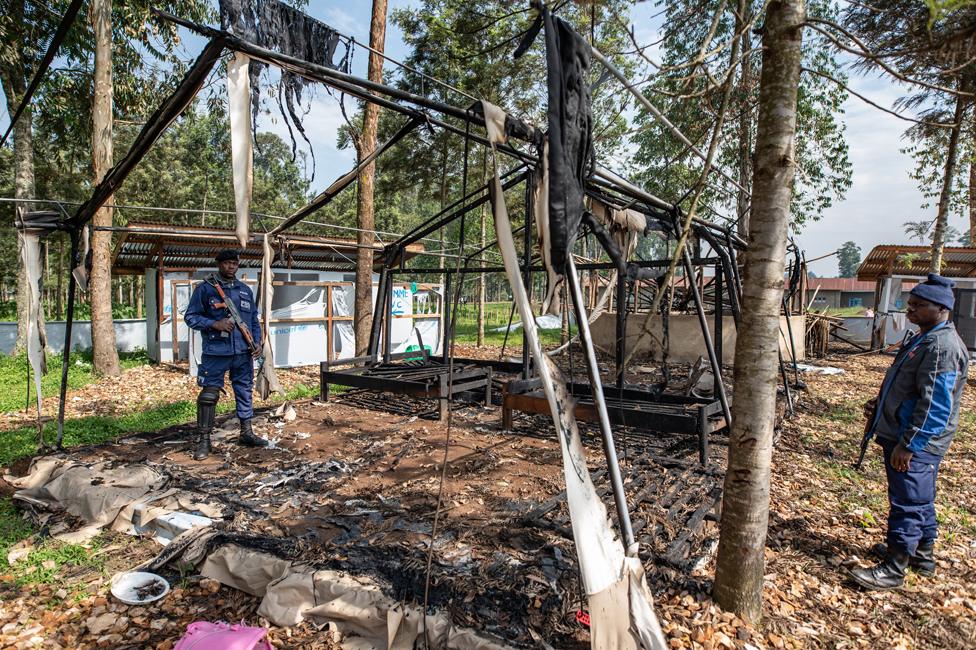
A burned treatment centre in Katwa, near Butembo
While I was in Butembo, I visited an Ebola treatment centre and spoke to a patient from the other side of a plastic window. She told me that she was there, hooked up to a drip, when rebels attacked but was too weak to flee. She said that she'd heard them shouting "Get the matches!" and had then felt heat from the blaze. She lay there thinking she would die until a nurse, who had fled, came back to rescue her some 40 minutes later. Luckily the tents where patients stay were spared and most of the centre has since been salvaged.
At the moment one in four Ebola sufferers in DR Congo are not turning up at treatment centres. In part, this is down to distrust and in part, fear - both of the disease and rebel attacks.
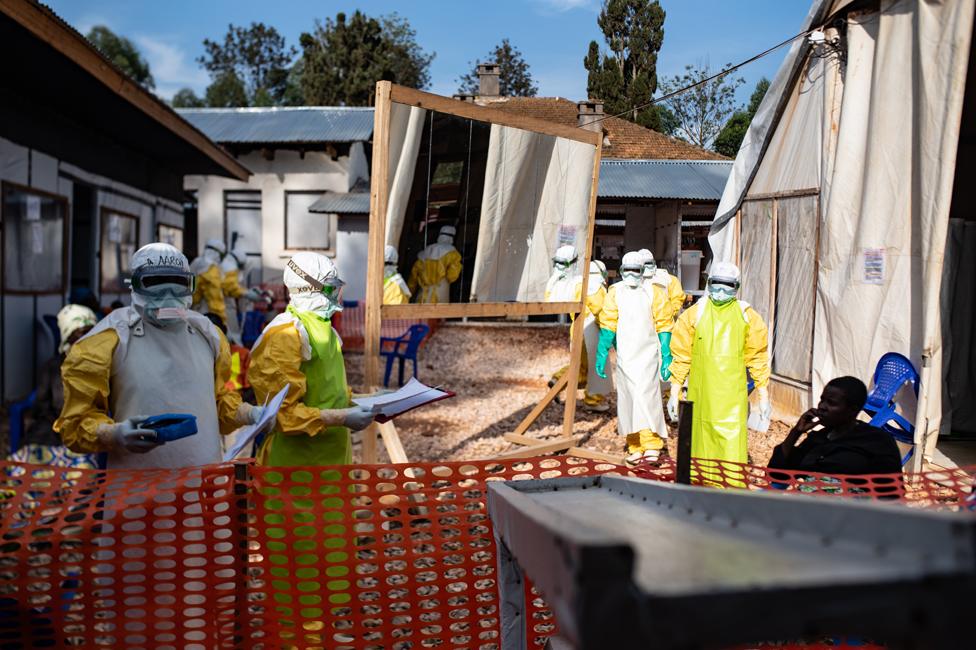
Health workers in DR Congo in protective clothing
DR Congo may be struggling to manage the spread of disease, but when the dreaded announcement came that the virus had spread across the border, Uganda was quick to act - 4,700 health workers in 165 hospitals have already been vaccinated. Marketplaces near the border have been closed down. Religious gatherings have been suspended. People are making an effort not to touch one another and handshakes have morphed into elbow nudges or waves.
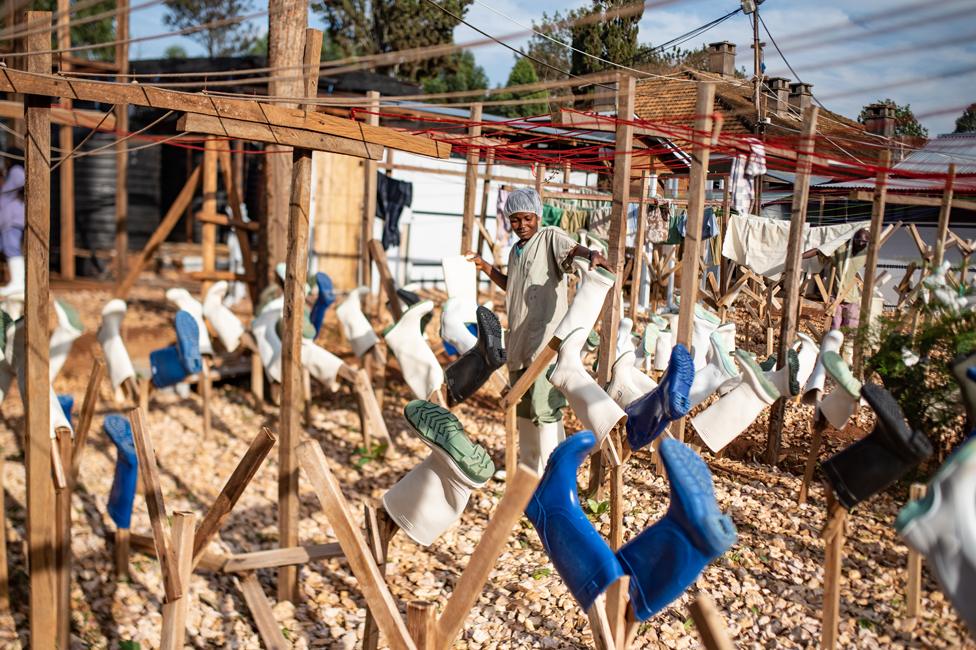
Sterilised boots are put out to dry in the sun
In reality, it tends to take more than a sweaty handshake for the disease to spread. An Ebola patient can only pass on the virus if their fluids enter someone else's body through broken skin, their mouth, nose, eyes or other orifices. As the disease causes diarrhoea as well as making you sweat, bleed and vomit, those most at risk - by far - are the ones caring for the sick.
In Uganda, the battle against Ebola will be determined by the government's ability to win the confidence of the people. The country is not strife-torn like its volatile neighbour, and has a more robust health system. For the time being, at least, there is hope the disease will be contained in Uganda.
Olivia Acland is DR Congo correspondent for the Economist
You may also be interested in:
Treating Ebola in the DR Congo warzone